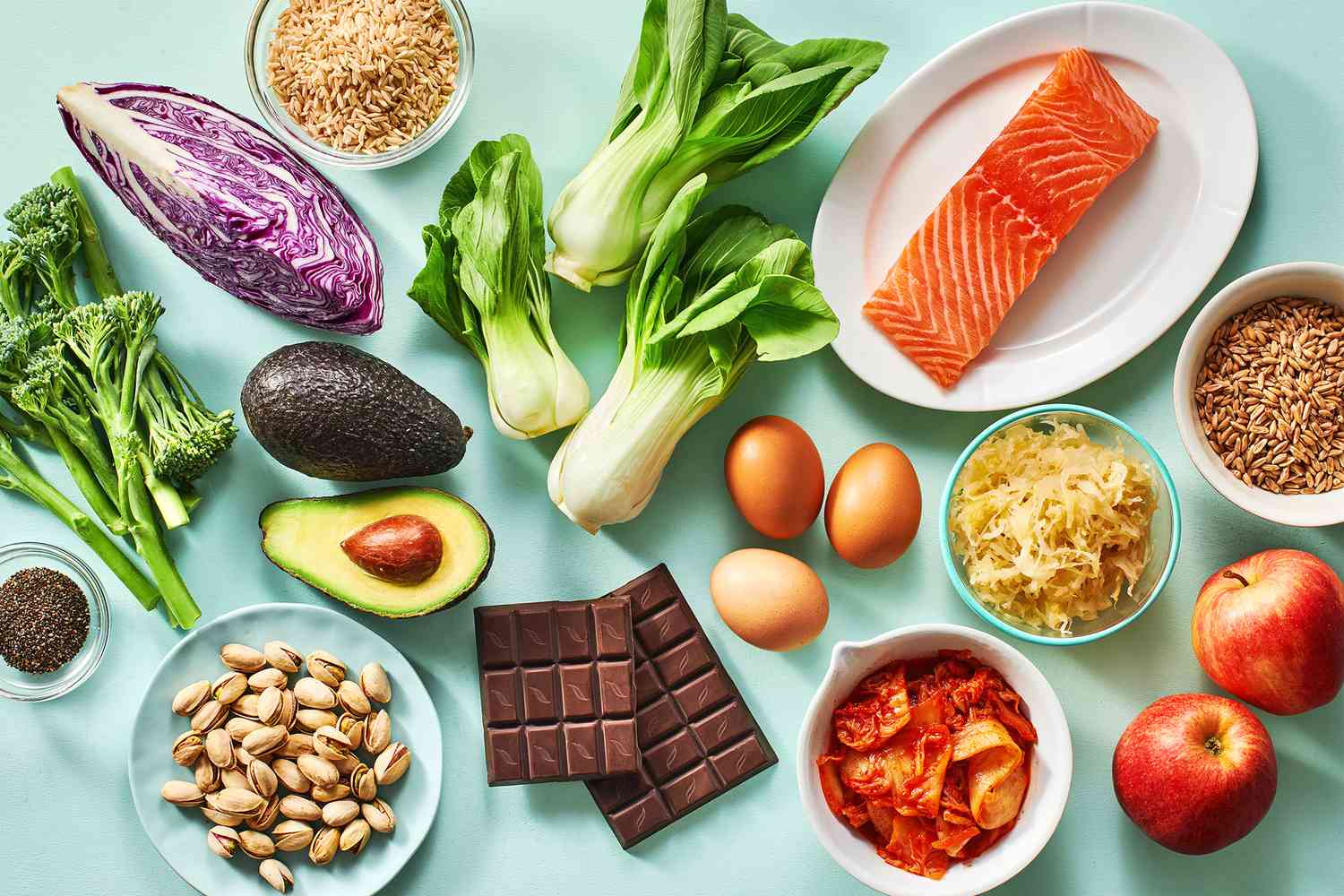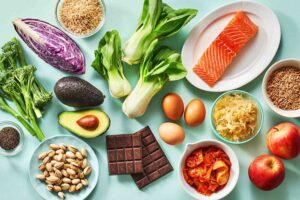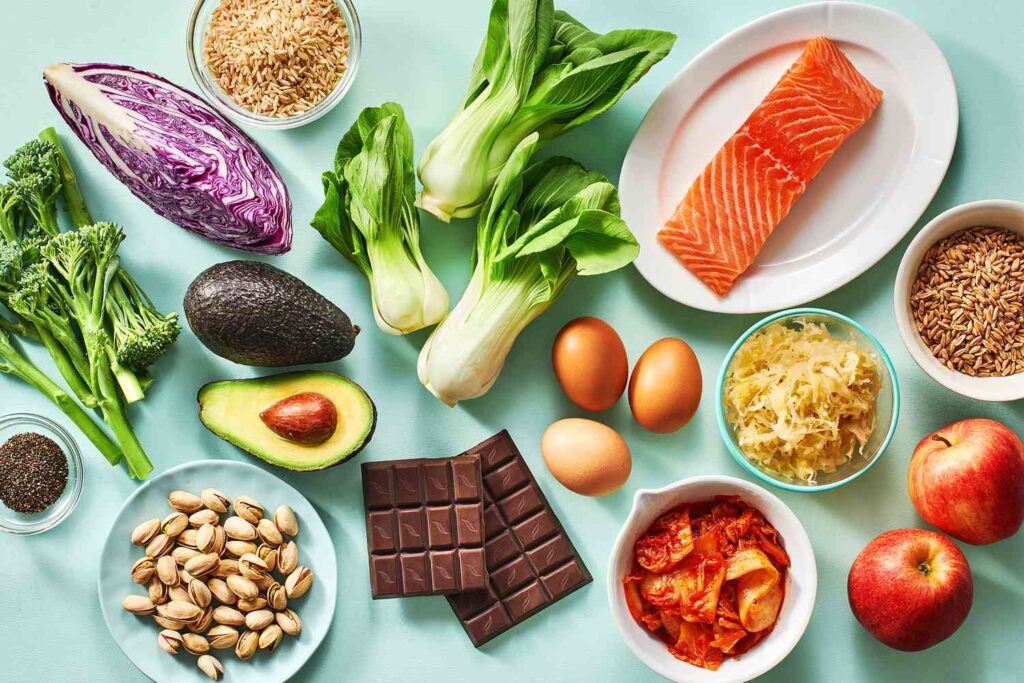
The Best Food for Weight Loss in a Week: A Complete Guide
Understanding Weight Loss: The Role of Food
Weight loss is fundamentally rooted in the principle of creating a calorie deficit, which occurs when the number of calories consumed is less than the number of calories expended. This deficit forces the body to utilize stored energy, leading to fat loss. Understanding how food influences this process is crucial for effective weight management. Each food item possesses a unique caloric value along with various macronutrients, namely carbohydrates, proteins, and fats, which play distinctive roles in metabolism and energy usage.
Macronutrients contribute differently to satiety and energy expenditure. For instance, proteins are known for their satiating properties, as they promote fullness and can reduce overall calorie intake. Additionally, protein has a higher thermic effect compared to fats and carbohydrates, meaning more energy is required for digestion and metabolism. Carbohydrates, especially complex ones like whole grains and legumes, provide essential energy while also offering fiber that enhances digestive health and prolongs feelings of fullness. On the other hand, healthy fats, such as those from avocados and nuts, are vital for hormone production and overall cellular function. The balance and type of macronutrients consumed can therefore significantly influence weight loss outcomes.
Moreover, the body’s metabolic rate – the rate at which it utilizes energy – can be influenced by food choices. Certain foods, such as those rich in protein or certain spices like cayenne pepper, can temporarily elevate metabolic rates and aid in fat burning. This highlights the importance of not just reducing calorie intake but also focusing on the nutritional quality of food for sustained weight loss. Selecting whole, nutrient-dense foods helps mitigate cravings and ensures that the body receives essential vitamins and minerals, further supporting overall health and weight loss efforts. In conclusion, understanding these principles can aid individuals in making informed dietary choices geared toward effective and lasting weight loss.
Top Foods to Include in Your Weight Loss Diet
When embarking on a weight loss journey, it is essential to include a variety of nutrient-dense foods that aid in achieving your goals while ensuring overall health. Below are categorized food groups highlighting the best options for a balanced weight loss diet.
Lean Proteins: Lean proteins play a vital role in weight loss as they promote satiety and help maintain muscle mass. Foods such as skinless chicken breast, turkey, fish, beans, and legumes are excellent choices. Incorporating these proteins into your meals can enhance metabolic rates and reduce hunger levels, making it easier to stick to a calorie deficit.
Whole Grains: Whole grains such as brown rice, quinoa, and oats are beneficial for their fiber content, which promotes digestive health and aids in maintaining fullness. Unlike refined grains, whole grains have their bran and germ intact, which means they retain essential nutrients and have a lower glycemic index, leading to better blood sugar control.
Fruits: Fruits are not only delicious but also packed with vitamins, minerals, and antioxidants. Berries, such as strawberries, blueberries, and raspberries, are particularly effective for weight loss due to their high fiber and low-calorie content. Apples and oranges are also great choices, as their water content and fiber help curb hunger while providing essential nutrients.
Vegetables: Vegetables should be a cornerstone of any weight loss diet. Leafy greens like spinach and kale are low in calories and rich in vitamins, making them an excellent addition to meals. Cruciferous vegetables such as broccoli and cauliflower can provide bulk to your dishes without adding significant calories, aiding in satiety.
Healthy Fats: Including healthy fats from sources like avocados, nuts, and olive oil can be beneficial in a weight loss diet. These fats contribute to a feeling of fullness and can aid in nutrient absorption. Moderation is key, as these foods are calorie-dense; however, they can play a role in balanced eating patterns promoting long-term adherence to dietary changes.

Meal Planning for Weight Loss: A One-Week Guide
Creating a meal plan for weight loss is an effective strategy to manage calorie intake while ensuring an adequate supply of nutrients.
The following one-week guide outlines a balanced meal plan that incorporates a variety of foods recognized for their weight loss benefits. Each day is structured to include meals and snacks that prioritize macronutrient balance while keeping overall calorie consumption in check.
Day one might start with a breakfast of oatmeal topped with berries for fiber and antioxidants, followed by a lunch of grilled chicken salad with mixed greens, avocado, and olive oil dressing.
A mid-afternoon snack could consist of baby carrots and hummus, while dinner may feature baked salmon accompanied by quinoa and steamed broccoli.
On day two, consider a smoothie made with spinach, a banana, and a scoop of protein powder for breakfast. Lunch can highlight a quinoa and black bean bowl with diced bell peppers.
For a satisfying snack, Greek yogurt topped with nuts is an excellent choice, and dinner can be grilled turkey burgers served with a side of sweet potato fries.
Meal prep is crucial to adhering to a weight loss meal plan.
Spending a few hours on the weekend to chop vegetables, prepare proteins, and cook grains can simplify your weekdays and help you avoid impulsive eating. Portion control is also vital; using smaller plates can aid in managing serving sizes.
To maintain energy levels throughout the day, remember to stay hydrated. Drinking water regularly can prevent feelings of hunger that might be mistaken for thirst. Additionally, incorporating healthy snacks, such as fruits, nuts, or whole grains, can help keep your metabolism active and reduce cravings.
Variations in meals are essential to stay committed to your weight loss journey. Consider swapping proteins or experimenting with different vegetables and spices to keep meals exciting. This approach not only enhances sustainability but also ensures a comprehensive intake of nutrients essential for overall health.
Tips for Staying on Track and Adjusting Your Diet
Embarking on a weight loss journey requires consistent effort and motivation. To maintain momentum, it is essential to set realistic goals. Establishing achievable and specific targets helps in fostering a positive mindset and boosts your confidence with each small victory.
Instead of aiming for drastic changes, consider focusing on gradual and sustainable weight loss, such as aiming for 1-2 pounds per week. This approach not only minimizes the risk of burnout but also reinforces healthy habits that can last a lifetime.
Social support plays a vital role in maintaining motivation during your weight loss journey. Surrounding yourself with friends, family, or support groups that share similar goals can provide encouragement and accountability.
Engaging in group workouts or cooking healthy meals together fosters a sense of community while reinforcing your commitment to healthier dietary choices. When faced with challenges, sharing your experiences with others can strengthen your resolve to persevere.
Tracking progress effectively contributes to staying on track. Whether through a journal or mobile app, documenting your meals, exercise routine, and changes in weight brings clarity to your journey. Additionally, regularly reviewing your results allows for necessary adjustments in dietary habits or workout routines, preventing stagnation during plateaus.
Dining out can pose challenges for those maintaining a weight loss regimen. Preparing in advance by reviewing menus and choosing healthier options can make dining experiences enjoyable without derailing your progress.
Additionally, frequent self-assessment of your dietary habits enables you to identify triggers and adapt as needed. Emphasizing nutrient-rich foods while minimizing processed options will lead to sustained energy and improved overall well-being.
By focusing on long-term health rather than quick fixes, you cultivate a balanced lifestyle that promotes enduring changes. This mindset fosters resilience in the face of setbacks, ensuring that your weight loss journey remains forward-focused and rewarding.









